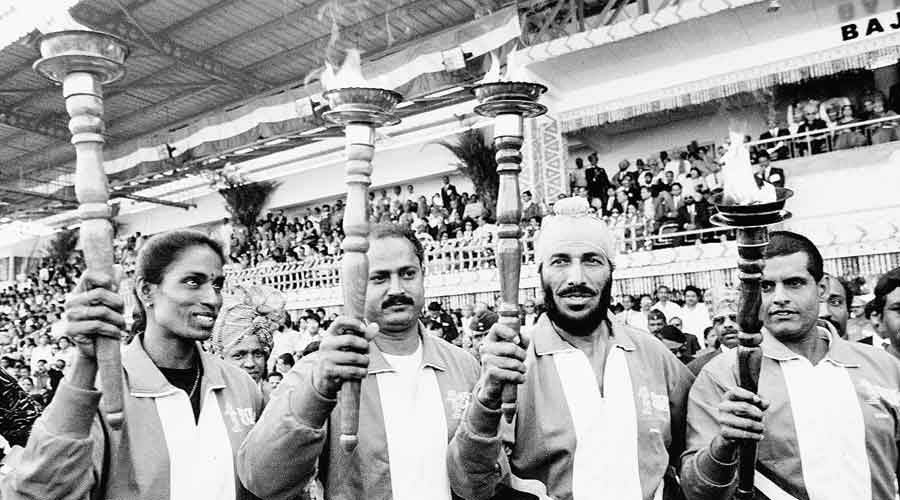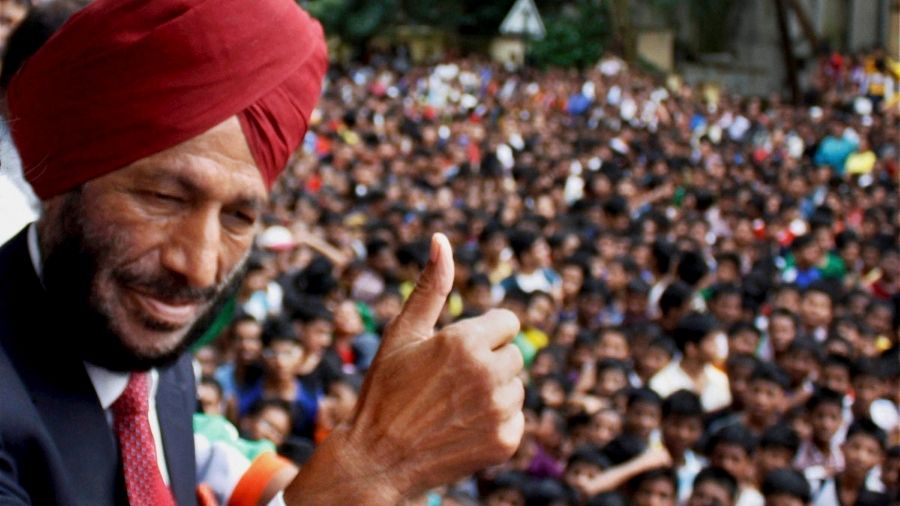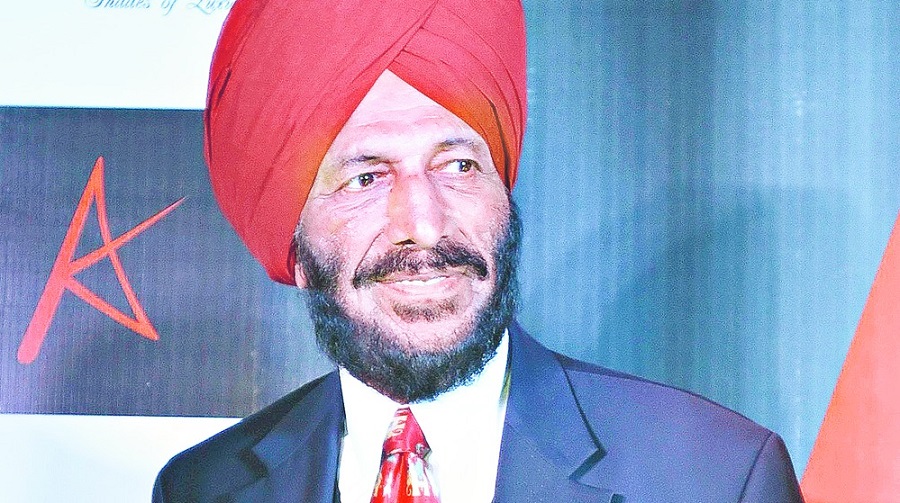Milkha Singh, who died of Covid on Friday night, was an inspiration and a lifelong guide, P.T. Usha told The Telegraph over the phone from Patiala on Saturday, one sprint legend paying homage to another.
Milkha Singhji called me “PT” or “Beti” and never addressed me as “Usha”. His loss has left me shocked.
The last time I met him was about three years ago when my husband Sreenivasan and I went to his home in Chandigarh, had lunch with him and spent a lot of time with Milkhaji and his wife. She was unwell and bed-ridden.
(Milkha’s wife Nirmal Kaur too died of Covid on June 13, five days before her husband.)
Like always, he was cracking jokes and providing advice and insight into athletics and the way I should coach my wards. It’s a pity that I couldn’t meet him after that because of the pandemic and the lockdown.
Coincidentally, I reached Patiala at 11am today (Saturday) for an athletic meet and Milkhaji was no more. I was hoping against hope to somehow meet him this time; I thought he would beat Covid the way he had beaten so many odds in his life.
I still remember how Nambiar Sir (Usha’s coach O.M. Nambiar) narrated stories about Milkhaji when I was just 13 and a student at the sports school in Kannur. He told me how this great athlete had braved the odds and worked hard to win laurels at the international level with hardly any support.
He even told me that famous joke about a reporter asking Milkhaji “Are you relaxing?” and Milkhaji, who was sitting on the turf after a race, quipping: “No, I’m Milkha Singh.”
As a child I dreamt of meeting this legend and learn from him. In 1982, when I was 18, I got to participate in the World Junior Invitation meet in Seoul, South Korea. That was where I first met him. He was chef de mission.
When I won gold in the 200 metres and bronze in the 100, he came over to congratulate me and advised me to work very hard irrespective of whatever challenge I faced. He said I had great potential. I still cherish those words. But we couldn’t talk much at the time because I didn’t know Hindi then.
After I missed bronze at the 1984 Los Angeles Olympics by a hundredth of a second, he advised me to participate in as many meets in Europe as possible.
“PT, keep running in competitions outside the country. They will help you excel and win you world events, and guide you to an Olympic medal,” he said.
After that, whenever Milkhaji met me, he would urge me to take part in competitions outside India.
I remember him telling me how difficult it was during his days with no real facilities or opportunities. He was so brave to have beaten all these odds and come up trumps with such stellar performances that would make him a champion even in today’s India.
How many people can run the 400 metres in 45.4 seconds (Milkha ran the 400 in 45.73 seconds at the Rome Olympics in 1960, missing bronze by a whisker)? Doesn’t that make him a champion now? That’s what made me wonder how he managed to achieve so much with so little resources and facilities.
He always wanted to visit Pakistan. He told me he wanted to see that country one day. (Milkha was born in Govindapura in Pakistan.)
I regularly met Milkhaji in and out of India at athletic meets. It was a delight to listen to him. We were part of the delegation of sportspersons and officials who visited Melbourne before India hosted the Commonwealth Games.
That was a dream come true for me since I got to travel with such a great man, not only to Melbourne but also to a town some three hours away where he had raced several years ago.
I could see his happiness when we saw the track on which he had raced. There was also a small museum near the track that had a picture of Milkhaji.
Since (Indian) athletes had to rough it out even when I came on the scene, I could only imagine what he had gone through. So during the Melbourne trip I asked him what the country had done for him for all the medals that he brought home.
Although I don’t remember the year, he told me he had been invited to meet the Prime Minister (Usha didn’t recall which Prime Minister, either). When the Prime Minister asked him what he wanted for his achievements, Milkhaji requested a day’s holiday for the entire country. And the next day was declared a holiday in his honour.
He didn’t ask for any praise or honour, something we see so much of nowadays.
I narrate the inspirational stories of Milkhaji to my students. Although today’s children get better equipment and training, it’s the examples set by great people like Milkhaji that can help them achieve what they want.
My memories of him are still very fresh. Whenever I went to New Delhi, I used to attend a lot of programmes with him.
No one could run like him. Maybe one or two people (in India) are coming close to running like him now, which only reflects how great an achievement his was then.
Even without facilities, he made his way through sheer dedication and hard work. He was the one who showed the way.













